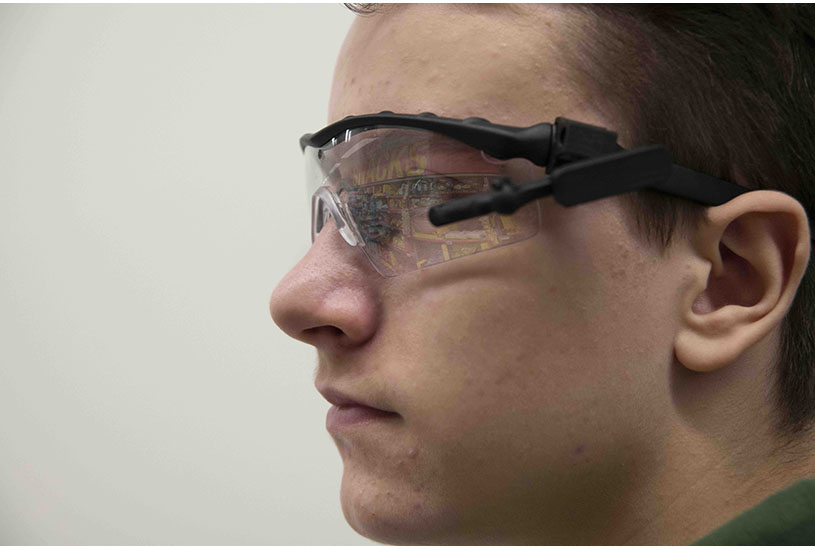The iPupilX is set to create a healthier advertising environment by tracking our engagement with cancer-causing products.
In a world-first, Deakin researchers are creating an automated tool that will monitor children’s exposure to, and engagement with, junk food, alcohol and tobacco advertising.
Lead researcher Associate Professor Kathryn Backholer, from the Institute for Health Transformation (IHT) at Deakin University, says that the data gathered will help decrease the number of cancer cases developed in the future.
“Essentially, we’re creating an urgently-needed, low-resource tool to provide a rigorous and ethically-sound way of monitoring exposure to harmful advertising in physical and digital environments.”
By creating a healthier advertising environment, we can minimise the power of risk factors for the next generation.
Taking the science outside the laboratory
For this project, data will be gathered using the iPupilX, an eye-tracking device. Information is generated through changes in the wearer’s pupil, disclosing attention and focus levels.
This technology provides a unique advantage; it can be worn during normal activities and routines, allowing researchers to gather data in settings outside of a laboratory.
“Previously this sort of work has been done in controlled experimental settings where children aren’t in their natural state,” explains Associate Professor Asim Bhatti, an expert in cognition and performance assessment.
“That can affect how they concentrate on what’s presented to them. Now we’ll be able to get a true sense of the impact of junk-food advertising on children as they go about their regular activities.”
A healthy solution to a preventable problem
According to Cancer Council Australia, one in three cases of cancer in Australia is preventable – the equivalent of 44,000 cases per year.
Evidence now shows that a poor diet, being overweight, minimal physical activity and excessive alcohol consumption collectively contribute to nearly the same number of cancer cases as smoking.
We already know that exposure to advertising influences children’s attitudes, perceptions, expectations and purchasing behaviour across their lives.
“Children have never been as engaged with digital and social media platforms as they are now,’ Associate Professor Backholer says, “and with this comes an exposure to high volumes of junk food and alcohol marketing that’s increasingly sophisticated in targeting children and those susceptible to the messaging.
“This project is responding to an urgent need that’s threatening the health of children around the world.”
Monitoring advertising for children, ethically
Although the World Health Organisation has identified a critical need for effective, ethical and adaptive tools to monitor unhealthy advertising to children, no such tools currently exist.
This is largely due to the highly complex and ethically sensitive task of collecting data from children as they go about their daily lives.
The Deakin team is aiming to overcome these barriers by creating a cross-disciplinary solution that brings together the expertise of researchers across public health, policy, complex systems and artificial intelligence.
This project is funded under a Cancer Council Victoria Venture Grant. Collaborators include Cancer Council, University of Sydney, University of Wollongong and the Obesity Policy Coalition.
Kathryn Backholer is an Associate Professor from Deakin’s Institute for Health Transformation (IHT).
Asim Bhatti is an Associate Professor from Deakin’s Institute for Intelligent Systems Research and Innovation (IISRI).



